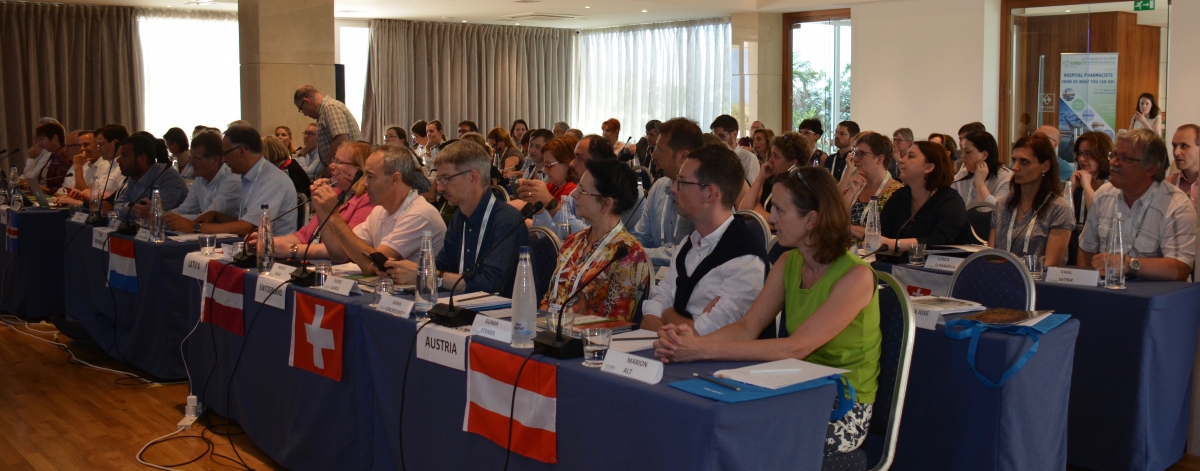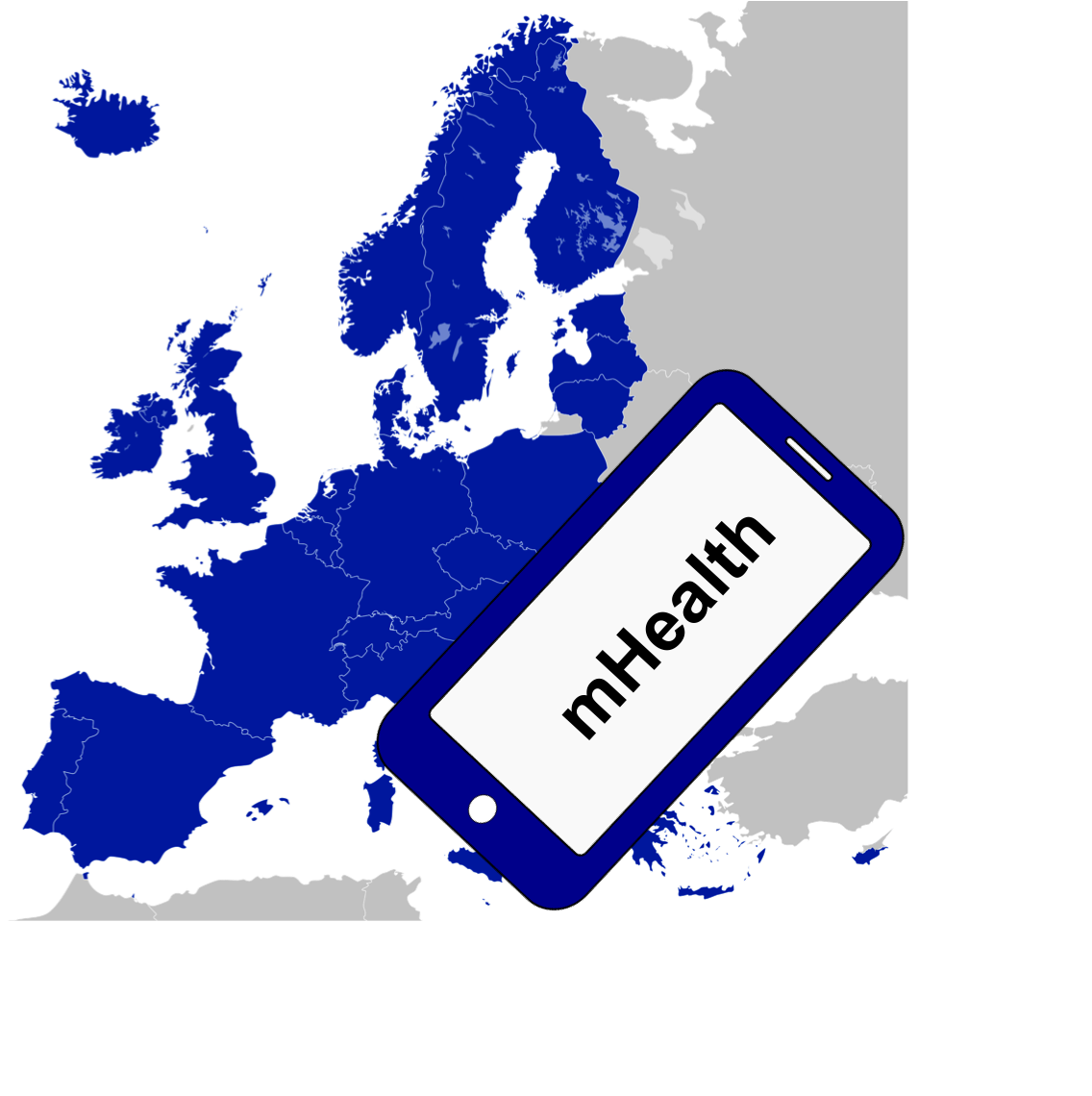 The EAHP EU Monitor is a regular round up of news relevant to hospital pharmacy in Europe.
The EAHP EU Monitor is a regular round up of news relevant to hospital pharmacy in Europe.
You can subscribe to receive the EAHP EU Monitor by email HERE.

General Assembly adopts position paper on biosimilar medicines
In mid-June, the European Association of Hospital Pharmacists (EAHP) gathered hospital pharmacists from across its member countries for its annual General Assembly in St. Paul’s Bay in Malta. Delegates from 34 of EAHP’s 35 member countries discussed the Association’s current and future projects – including the implementation of the 44 European Statements of Hospital Pharmacy and the development of a Common Training Framework for hospital pharmacy specialisation in Europe – as well as policy developments in areas of interest to hospital pharmacists.
Due to increasing interest in the opinion of hospital pharmacists on biosimilar medicines, EAHP’s members adopted a position paper on this topic. The position paper provides an appropriate mandate to better respond to requests relating to biosimilar medicines. It addresses the role of the hospital pharmacist as well as other matters relevant to EAHP, such as
- naming of biosimilar medicines;
- extrapolation of indications;
- interchangeability, switching and substitution of biosimilar medicines; and,
- information about biosimilar medicines.
Like for all other medicines, EAHP also recommends informed patient involvement and shared decision making for biosimilar medicines.
EAHP’s member countries also saw a need to revise the existing position paper on eHealth and mHealth due to rapid changes in this policy field. The revision addressed the developments that took place in relation to mobile technology over the past few years. In addition, it acknowledged that both eHealth and mHealth are continuing to play an important role on the EU’s policy agenda. It is EAHP’s believe that eHealth/ mHealth technologies should be developed in close collaboration with healthcare professionals including hospitals pharmacists and patients. Therefore, the Association calls upon national governments and health systems across Europe to work towards
- systematic and EU-wide achievement of electronic prescribing, administration and use of electronic medical records (EMR);
- ensuring barcoding of medicines to the single units in primary packages to enable more widespread takeup of bedside scanning in European hospitals, thus improving patient safety;
- appropriate regulatory oversight mechanisms for mHealth applications to ensure that they have a positive impact and adequately protect patient data;
- provision of appropriate eHealth/mHealth training opportunities to healthcare professionals and promotion of digital health literacy; and,
- involvement of hospital pharmacists in the design, specification of parameters and evaluation of ICT within the medicines processes.
Besides on important policy decisions, the delegates of EAHP’s General Assembly also voted on 3 new board members and a new President-Elect. Over the next 12 month, Petr Horák, will be acting as President-Elect, before commencing his 3-year term as President of the Association. The new members that were welcomed to the Board of EAHP are Despina Makridaki (Greece), Nenad Miljković (Serbia) and Steffen Amann (Germany). They are all elected to serve 3-year terms as Directors of Professional Development.
The position paper on biosimilar medicines is available HERE
The revised position paper on eHealth/mHealth is available HERE
More information on EAHP’s General Assembly can be found in the recently published PRESS RELEASE

Letter to Juncker on the importance of EU Health Collaboration for Europe’s future
On initiative lead by the European Public Health Alliance (EPHA) and the European Patients Forum (EPF), over 30 organisations representing EU health stakeholders joined forces and wrote a letter to Commission President Jean-Claude Juncker highlighting the importance of EU Health Collaboration. The European Association of Hospital Pharmacists (EAHP) was among the group of EU health stakeholders that co-signed the letter.
The letter was sent in the context of the European Commission’s White Paper that outlines the future of the European Union after 2025. It stresses the importance of EU health policies in fostering collaboration on common public health issues within Member States.
The group called for an enhanced EU action in the field of health that brings the EU closer to its citizens, by protecting patients and consumers and improving people’s health as well as for EU action on health that fosters cross-country collaboration, integrates the action of Member States and helps them to address the unprecedented challenges we are facing. To achieve this the authors of the letter are requesting a meeting with Commissions President Jean-Claude Juncker to discuss their concerns and ideas regarding a robust EU Health Programme and the leadership of a dedicated Directorate in the European Commission.
The full letter is available HERE

Commission Working Group on mHealth concludes its work
The Working Group on mHealth assessment guidelines recently concluded its work with the publication of its final report. The Working Group was established by the European Commission in February 2016 to develop guidelines for assessing the validity and reliability of the data that health apps collect and process. The European Commission selected members representing civil society, research and industry organisations to participate in the group.
Contrary to their mandate the group could not reach a consensus on a set of guidelines. Difficulties were encountered, since building such a guideline was a much more complex exercise than expected at the beginning of the process. In addition, Group members struggled to determine criteria that would be fit for purpose for the fast moving and evolving environment in which mHealth is situated. Nonetheless, the Group allowed for valuable exchanges which are captured in its final report summarising the process and the positions from the represented stakeholders. The report outlines on the one hand the different activities undertaken by the Group and highlights on the other hand the different views of the Group members on the criteria for the assessment of apps and data.
Despite the conclusion of the activities of the Working Group on mHealth assessment guidelines, mHealth will remain an important topic in European Commission policy on eHealth, in particular aspects around the validity and reliability of data from mHealth solutions. Thus, the results of the Working Group on mHealth assessment guidelines will be closely associated to the works of the eHealth network subgroup on mHealth which is led by Member States representatives.
In addition, WHO-ITU commenced its activities related to the mHealth Hub, a project funded by the Horizon 2020 programme. The mHealth Hub seeks to develop national mHealth interventions in selected EU Member States to champion the uptake of mHealth and to focus on the foundation and maintenance of a centralised ‘Knowledge and Innovations Hub for mHealth’ to monitor and enable mHealth adoption and innovation. This should be achieved by fostering research and innovation in mHealth and bolstering policy making efforts in implementing mHealth strategies tailored to the need of the European countries and regions involved.
The report of the Working Group on mHealth assessment guidelines is available HERE
 Winds of change in Europe
Winds of change in Europe
Membership opportunities at EAFP
The European Association of Faculties of Pharmacy (EAFP) – which is active in relation to the advancement of pharmacy education and research to reflect developments in pharmacy and the needs of society – reviewed its Statutes during the last General Assembly in Helsinki.
EAFP saw a need to adjust its membership structure to continue driving European-wide reviews to identify practices in pharmacy education and propose models and materials that could be adopted by pharmacy schools to address challenges presented by the developments in pharmacy and in education.
The Association now offers membership in four different categories:
- Institutional membership: Open to all institutions of higher education (universities, faculties, schools, departments or institutes) offering courses that confer upon graduates the qualifications required for the recognition as a professional pharmacist as outlined by EC regulations. Each institution is represented by one person with voting rights at the General Assembly.
- Associate institutional membership: Open to all institutions in Europe or elsewhere who do not confer a EU-recognized professional pharmacy degree (i.e. having no access to a regular membership). Non-EU institutions, which confer locally recognized pharmacy degrees, can apply for an associate membership.
- Individual membership: Open to individuals (faculty and other teaching staff), who are employed by a European institution, which confers a EU-recognized professional pharmacy degree. Individual membership is possible as an alternative for the Institutional membership, if the institution of the applicant chooses not to be a member.
- Associate individual membership: Open to individuals (faculty and other teaching staff), who are employed in Europe or elsewhere by an institution who chooses not to apply for an Associate institutional membership.
New ECDC Director General takes up office
On 16 June 2017, the European Centre for Disease Prevention and Control (ECDC) appointed Dr Andrea Ammon as its new Director. She was elected by ECDC’s Management Board on 22 March 2017 and had a hearing before the European Parliament’s Committee on the Environment, Public Health and Food Safety (ENVI) on 10 April.
Dr Ammon – a medical doctor from Germany – is well known within the public health community. She has been involved in the activities of ECDC since its very beginning. Before serving as Acting Director, she has been active within ECDC as the Head of the Surveillance Unit, Deputy to the Director and Head of Resource Management and Coordination Unit. Prior to joining ECDC, Dr Ammon worked in the Robert Koch-Institute in Berlin, Germany. In her different roles at the institute, she was responsible for maintaining and developing the national surveillance system, coordinating the national outbreak response team for current and emerging infections (including SARS and influenza A[H2N2]) and providing scientific advice for government ministries, Members of Parliament, and the public.
More information on her hearing before the European Parliaments ENVI Committee HERE

EJHP: Quality improvement of medicine-related healthcare service
The online first edition of the European Journal of Hospital Pharmacy (EJHP) has published an original article on the improvement of quality of medicine-related healthcare service. The study investigated the effects of pharmacist-led patient-centred discharge services on the quality of medicine-related healthcare service that were provided at hospital discharge. Its findings suggested that contributions from clinical pharmacists can improve both the quality of and satisfaction with the medicine-related healthcare service.
More HERE
————————————————————–

Consultations
EMA – Concept paper on a guideline on the evaluation of medicinal products indicated for treatment of influenza
EMA consults on a concept paper proposing the development of a guideline on the clinical evaluation of medicinal products indicated for the treatment of influenza for which there is no regulatory guidance currently available within the EU.
Deadline – 31st July 2017
More information HERE
EMA – Concept paper on the revision of the guideline on the role of pharmacokinetics in the development of medicinal products in the paediatric population
The guideline was issued in 2007. Over the last 10 years, the EMA Paediatric Committee has approved a large number of Paediatric Investigational Plans and an increasing number of applications for paediatric indications have been submitted to EMA and the national regulatory agencies. A revision to the guideline is therefore proposed to reflect the experience gained over the last decade and developments in science.
Deadline – 31st July 2017
More information HERE
EMA – concept paper on the need for the development of a reflection paper on regulatory requirements for the development of medicinal products for chronic non-infectious liver diseases (PBC, PSC, NASH)
Based on the need for further guidance, EMA would like to work on a reflection paper outlining requirements for the development of medicinal products for chronic non-infectious liver diseases. The consultation aims at determining the scope of this paper.
Deadline – 31st August
More information HERE
European Commission – Stakeholder consultation for the evaluation of EU legislation on blood, tissues and cells
The purpose of this consultation is to support a comprehensive evaluation of the Union legislation on blood and tissues and cells – Directives 2002/98/EC and 2004/23/EC respectively and their implementing (technical) Directives, examining their functioning across the EU. In particular, the consultation aims to gather views on the extent to which the Directives have met their original objectives and whether they remain fit for purpose. The evaluation is expected to provide a sound evidence base which will be used to consider the need for any changes to the legislation.
Deadline – 31st August
More information HERE

Upcoming events
27th June – Future Scenarios for the EU: What role for Healthcare?
Brussels, Belgium
In view of the recent dynamics in the EU and the discussions stemming from the White Paper on the Future of Europe, the MEP Interest Group on Access will host a debate to discuss the European added-value in the area of health and the possibilities to sustain cooperation in future
7th September – EPHA 8th Annual Conference: Make Health Your Business
Brussels, Belgium
Despite the existence of a strong evidence base for effective policy action on health promotion and disease prevention too little has been achieved. Policy-makers already know what needs to be done to overcome barriers to good health so the focus of this conference will be to explore how new levers and different levels of power can break through to real action on chronic diseases – by making health everyone’s business.
























 The EAHP EU Monitor is a regular round up of news relevant to hospital pharmacy in Europe.
The EAHP EU Monitor is a regular round up of news relevant to hospital pharmacy in Europe.


 Winds of change in Europe
Winds of change in Europe
